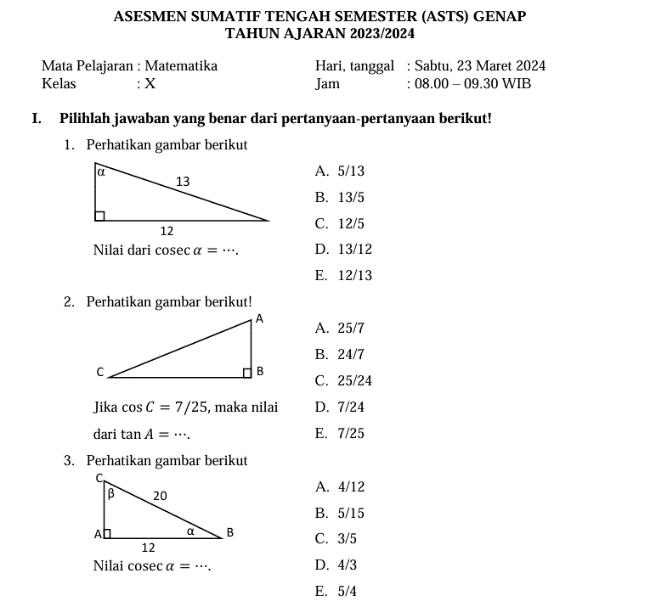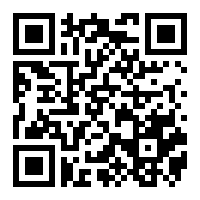Critical Thinking Improvement through Numeracy Literacy: Insights from Senior High School Practices
DOI:
https://doi.org/10.23917/ijolae.v7i2.8669Keywords:
advanced level education, critical thinking, critical thinking disposition, education system, innovative learning, learning outcomes, numeracy literacy, PISAAbstract
Numeracy literacy skills are the main focus in the Indonesian education system to prepare students for the 21st century. However, in practice, efforts to acculturate numeracy literacy in schools are still not implemented optimally. Therefore, this study has two main objectives, namely: 1) to describe the acculturation of numeracy literacy of senior high school students; 2) to explore the critical thinking disposition of senior high school students. This research is part of a developmental research that focuses on a qualitative approach with an ethnographic design. The subjects in this study were students, subject teachers, and one of the senior high schools in Surakarta. The research data were collected through interviews conducted with teachers, direct observation during classroom learning activities, and documentation related to mathematics assessments used in schools. Data validation was conducted using source triangulation technique to ensure data credibility.
Downloads
References
Adhantoro, M. S., Gunawan, D., Prayitno, H. J., Riyanti, R. F., Purnomo, E., & Jufriansah, A. (2025). Strategic technological innovation through ChatMu: transforming information accessibility in Muhammadiyah. Frontiers in Artificial Intelligence, 8, 1446590.
Adhantoro, M. S., Ula, R., Harefa, M., Assifa, N., Riyanti, R. F., Purnomo, E., ... & Wahyuni, C. S. (2024). Implementasi Program Literasi Teknologi untuk Meningkatkan Kesadaran Digital Siswa di ICC Al Anshar Bahau, Malaysia. Buletin KKN Pendidikan, 289-204.
Ahn, K. H. (2024). Main contents and implications of the 2023 revision of the OECD Guidelines for Multinational Enterprises. Journal of International Logistics and Trade, 22(2), 80-92.
Ajid, S. N., Kusumaningtyas, D. A., Ratih, K., & Lava, S. (2025). Strategies for Integrating Problem-Based Learning, Teaching Modules, and Formative Assessments to Enhance Learning Outcomes and Critical Thinking Skills. Indonesian Journal on Learning and Advanced Education (IJOLAE), 7(2), 218–232. https://doi.org/10.23917/ijolae.v7i2.8612
Apriatni, S., Yuhana, Y., & Sukirwan, S. (2022). Pengembangan Instrumen Literasi Numerasi Materi Trigonometri Kelas X Sma. EDU-MAT: Jurnal Pendidikan Matematika, 10(2), 185. https://doi.org/10.20527/edumat.v10i2.13720
Aqillah, H. N., Kurniasi, E. R., & Agustine, P. C. (2023). Development of Mathematics Literacy Questions on Trigonometry. Brillo Journal, 3(1), 10–20. https://doi.org/10.56773/bj.v3i1.31
Ardiningtyas, M., Harahap, T. H., & Panggabean, E. M. (2023). Penerapan Teori Piaget dalam Pembelajaran Matematika di Sekolah Menengah Atas: Studi Kasus di Sekolah SMA Negeri 3 Medan. Tut Wuri Handayani : Jurnal Keguruan Dan Ilmu Pendidikan, 2(2), 66–71. https://doi.org/10.59086/jkip.v2i2.294
Arisoy, B., & Aybek, B. (2021). The effects of subject-based critical thinking education in mathematics on students’ critical thinking skills and virtues*. Eurasian Journal of Educational Research, 2021(92), 99–120. https://doi.org/10.14689/ejer.2021.92.6
Asrafil, A., Retnawati, H., & Retnowati, E. (2020). The difficulties of students when solving HOTS problem and the description of students cognitive load after given worked example as a feedback. Journal of Physics: Conference Series, 1511(1). https://doi.org/10.1088/1742-6596/1511/1/012092
Azizah, S. (2022). The 21 st Century Skills through Literacy and Numeracy at Public Junior High Schools in Pamekasan Madura. Proceedings of the 6th International Conference on Islamic Studies (ICONIS), 13–18.
Daley, E. (1997). Expanding the Concept of Literacy. Media Literacy in the Information Age, March/April, 32–40.
Darmawan, E. W., & Suparman, S. (2019). Design of Mathematics Learning Media based on Discovery Learning to Improve Problem Solving Ability. Indonesian Journal on Learning and Advanced Education (IJOLAE), 1(2), 20–28. https://doi.org/10.23917/ijolae.v1i2.7564
Domu, I., Regar, V. E., Kumesan, S., Mangelep, N. O., & Manurung, O. (2023). Did the Teacher Ask the Right Questions? An Analysis of Teacher Asking Ability in Stimulating Students’ Mathematical Literacy. Journal of Higher Education Theory and Practice, 23(5), 248–256. https://doi.org/10.33423/jhetp.v23i5.5970
Elvina, A., & Setyaningsih, N. (2023). Development of student worksheets based on numerational literacy on linear program materials to support assessment of minimum competency. The 2nd International Conference on Mathematics and Learning Research (ICOMER). https://doi.org/https://doi.org/10.1063/5.0154671
Ennis, R. H. (1996). Critical Thinking Dispositions: Their Nature and Assessability. Informal Logic, 18(2), 165–182. https://doi.org/10.22329/il.v18i2.2378
Evans, C. (2020). Measuring student success skills: A review of the literature on self-directed learning. Center For Assessment, 1–18.
Golzar, J., Noor, S., & Tajik, O. (2022). Convenience Sampling. IJELS : International Journal of Education and Languange Studies, 1(2), 72–77. https://doi.org/10.4135/9781412972024.n551
Han, W., Susanto, D., Dewayani, S., Pandora, P., Hanifah, N., Miftahussururi., Nento, M. N., & Akbari, Q. S. (2017). Materi Pendukung Literasi Numerasi. Kementrian Pendidikan Dan Kebudayaan, Tim GLN Kemendikbud., 8(9), 1–58.
Handayani, P. N., & Sutama. (2024). Numeracy literacy skills of socio-cultural contexts on geometry in junior high schools. AIP Conference Proceedings, 2926(1). https://doi.org/10.1063/5.0182847
Hutajulu, M., Wijaya, T. T., & Hidayat, W. (2019). the Effect of Mathematical Disposition and Learning Motivation on Problem Solving: an Analysis. Infinity Journal, 8(2), 229. https://doi.org/10.22460/infinity.v8i2.p229-238
Jailani, J., Heri Retnawati, H. R., Wulandari, N. F., & Djidu, H. (2020). Mathematical Literacy Proficiency Development Based on Content, Context, and Process. Problems of Education in the 21st Century, 78(1), 80–101. https://doi.org/10.33225/pec/20.78.80
Jannati, A. A., & Sumardi. (2023). A Minimum Competency Assessment-Based Electronic. The 2nd International Conference on Mathematics and Learning Research (ICOMER). https://doi.org/https://doi.org/10.1063/5.0155906
Kamid, K., Huda, N., Syafmen, W., Sufri, S., & Sofnidar, S. (2021). The Relationship between Students’ Mathematical Disposition and Their Learning Outcomes. Journal of Education and Learning (EduLearn), 15(3), 376–382. https://doi.org/10.11591/edulearn.v15i3.17604
Kemendikbud. (2021). Asesmen Nasional: Lembar Tanya Jawab. Kementerian Pendidikan Dan Kebudayaan, 1–32.
Kolar, V. M., & Hodnik, T. (2021). Mathematical literacy from the perspective of solving contextual problems. European Journal of Educational Research, 10(1), 467–483. https://doi.org/10.12973/EU-JER.10.1.467
Kusuma, D., Sukestiyarno, Y. ., Wardono, & Cahyono, A. N. (2022). The Characteristics of Mathematical Literacy Based on Students’ Executive Function. European Journal of Educational Research, 11(1), 193–206.
Listiaji, P., Widianingrum, R. A., Saputri, A. A. I., & Rahman, N. F. A. (2022). PjBL Model assisted by Smartphone Sensors to Improve Critical Thinking Skills of Prospective Science Teachers. Indonesian Journal on Learning and Advanced Education (IJOLAE), 4(3), 246-256.
Mania, S., Fitriani, F., Majid, A. F., Ichiana, N. N., & Abrar, A. I. P. (2020). Analisis Butir Soal Ujian Akhir Sekolah. Al Asma : Journal of Islamic Education, 2(2), 274. https://doi.org/10.24252/asma.v2i2.16569
Meliana, M., Suwindia, I. G., & Winangun, I. M. A. (2025). Efektivitas Media Pembelajaran Digital terhadap Kemampuan Literasi Numerasi Siswa. 8, 862–867.
Mukhlis, M., Suwandi, S., Rohmadi, M., & Setiawan, B. (2023). Higher Order Thinking Skills in Reading Literacy Questions at Vocational High Schools in Indonesia. International Journal of Language Education, 7(4), 615–632. https://doi.org/10.26858/ijole.v7i4.37603
Nasir, N., Nurhajarurahmah, S. Z., Wazithah, M. A., Rahman, M. S., & Jafar. (2024). Penyusunan Soal HOTS Sebagai Upaya Meningkatkan Kemampuan Literasi dan Numerasi Siswa MA Arifah Gowa. Jurnal Pelayanan Masyarakat Intelektual, 1(1), 36–40.
Nasution, M. P., Sormin, D., Lubis, J. N., Wahyuni, S., Siregar, A. K., & Mahir, A. (2024). Harnessing Loose Part Media for Cognitive Development: Evaluating Its Effects on Early Mathematics Play Activities in Early Childhood Education. Indonesian Journal on Learning and Advanced Education (IJOLAE), 6(2), 254–268. https://doi.org/10.23917/ijolae.v6i2.23184
Nurmeidina, R., Zaqiyah, N. N., Nugroho, A. G., Andini, A., Faiziyah, N., Adnan, M. B., & Syar’i, A. (2025). Exploring the Interplay between Habits of Mind and Problem-Solving Skills in Online Mathematics Learning: Insights from Three-Variable Linear Equation Contextual Problems. Indonesian Journal on Learning and Advanced Education (IJOLAE), 7(1), 117–135. https://doi.org/10.23917/ijolae.v7i1.23550
OECD. (2019). An OECD learning framework 2030 (pp. 23-35). Springer International Publishing.
Octaviana, P., & Setyaningsih, N. (2022). Kompetensi Berpikir Kritis Siswa Dalam Memecahkan Persoalan Hots Berdasarkan Gaya Belajar. AKSIOMA: Jurnal Program Studi Pendidikan Matematika, 11(2), 1436. https://doi.org/10.24127/ajpm.v11i2.4928
Rahardhian, A., Astuti, I., & Afandi. (2022). Eksplorasi Disposisi Berpikir Kritis Siswa SMP Negeri 2 Balai. Wacana Akademika: Majalah Ilmiah Kependidikan, 6(3), 295–302.
Rahmawati, W. A., Usodo, B., & Fitriana, L. (2021). Mathematical Literacy of Students Who Have High Mathematical Disposition in Solving PISA-Like Mathematics Problems. Proceedings of the International Conference of Mathematics and Mathematics Education (I-CMME 2021), 597, 281–287. https://doi.org/10.2991/assehr.k.211122.039
Rusiana, R., Nuraeningsih, N., Sulistyowati, T., Syafei, M., Romadlon, F. N., Nurcahyo, A. D., Agulan, L. P., Thongmark, N., Anna, S., Kurt-Taşpınar, H., & Abdurrahman Ahmed Milad. (2024). Book Clubs as a Pedagogical Tool for Developing Critical Thinking: Evidence from an English Education Program in Indonesia. Indonesian Journal on Learning and Advanced Education (IJOLAE), 6(3), 350–364. https://doi.org/10.23917/ijolae.v6i3.23663
Santoso, W. T., Nawanti, R. D., & Murtiyasa, B. (2023). Efektivitas Google Classroom Saat Masa Pandemi Terhadap Keaktifan dan Hasil Belajar Notasi Kepatihan. 12(4), 577–588.
Setyaningsih, N., & Mukodimah, T. D. (2022). Pengembangan Instrumen Asesmen Higher Order Thinking Skills (Hots) Berbasis Literasi Matematika Pada Materi Spldv. AKSIOMA: Jurnal Program Studi Pendidikan Matematika, 11(3), 1739. https://doi.org/10.24127/ajpm.v11i3.5447
Silwana, A., Manyunu, M., & Rashahan, A. A. (2021). Students’ responses leveling in solving mathematical problem based on SOLO taxonomy viewed from multiple intelligences. Indonesian Journal on Learning and Advanced Education (IJOLAE), 1-16.
Singh, D., Chand, S. P., Kumar, K. K., Ali, R., & Info, A. (2023). Effectiveness of literacy and numeracy in commerce subjects among secondary schools in Fiji. Journal of Education and Learning (EduLearn), 17(3), 447–454. https://doi.org/10.11591/edulearn.v17i3.20873
Steen, L. A., Turner, R., & Burkhardt, H. (2007). Developing Mathematical Literacy. Journal of Humanistic Mathematics, 10, 285–294. https://doi.org/https://doi.org/10.1007/978-0-387-29822-1_30
Sugiyono, D. (2010). Metode penelitian kuantitatif kualitatif dan R&D. In Penerbit Alfabeta.
Sulistiowati, D. L. (2024). Hubungan antara kemampuan berpikir kritis matematis dan disposisi berpikir kritis matematis. Journal of Mathematics Education, 5(1), 31–44.
Sutama, Hidayati, Y. M., & Novitasari, M. (2022). Metode Penelitian Pendidikan.
Sutama, S., Fuadi, D., Narimo, S., Hafida, S. H. N., Novitasari, M., Anif, S., Prayitno, H. J., Sunanih, S., & Adnan, M. (2022). Collaborative mathematics learning management: Critical thinking skills in problem solving. International Journal of Evaluation and Research in Education, 11(3), 1015–1027. https://doi.org/10.11591/ijere.v11i3.22193
Ulger, T. K., Bozkurt, I., & Altun, M. (2022). Analyzing in-service teachers ’ process of mathematical literacy problem posing. International Electronic Journal of Mathematics Education, 17(3), 1–19.
Winarti, A., Almubarak, A., Sundari, T., Sumardjoko, B., & Nzuza, Z. (2024). Enhancing Cognitive Learning: A Comparative Analysis of E-Learning Media Tailored to Different Learning Styles. Indonesian Journal on Learning and Advanced Education (IJOLAE), 6(2), 280–294. https://doi.org/10.23917/ijolae.v6i2.23079

Submitted
Accepted
Published
Issue
Section
License
Copyright (c) 2025 Arum Afdhalishani Jannati, Sutama Sutama, Nining Setyaningsih, Mazlini Adnan

This work is licensed under a Creative Commons Attribution 4.0 International License.












